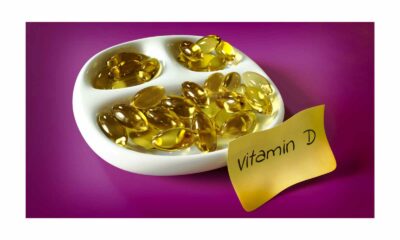Anyone who has dry skin will attest to how difficult it is to keep it under control. Itching, irritation, peeling, and even redness are signs of dry skin. You keep trying to keep your skin smooth and moisturized, but you just can’t seem to get rid of dry skin. If this is the case for you, it’s essential to hydrate your skin both internally and externally. While keeping your skin hydrated and moisturized is aided by drinking enough water, you also need to make sure that your diet has the necessary nutrients for dry skin. These contain vitamins E, C, and omega-3 fatty acids, among others, which nourish and shield skin from the inside out.
Signs of Skin Dryness
Although dry skin is more common in the winter, it can occur in other seasons as well. These are a few typical indicators of dry skin:
- spongy skin
- tight skin
- Itching
- coarseness of texture
- Skin imperfections or fissures Skin peeling
- itchy and irritated skin
Eight vital nutrients that are necessary for dry skin
To help with dry skin, include these 8 nutrients in your diet on a daily basis:
1.Vitamin C
Vitamin C is a potent antioxidant that is well-known for enhancing immunity. It is also essential for the creation of collagen. Dermatologist Dr. Rinky Kapoor says, “If you have dry skin and it is causing patches, flakiness, and itching, adding vitamin C to your diet can help hydrate your skin and maintain skin elasticity and firmness,” It can also improve the skin’s capacity to retain moisture and hasten the repair of damaged skin cells. According to the Indian Dermatology Online Journal, dry skin can cause hyperpigmentation, which can be treated with vitamin C.
Foods high in vitamin C include bell peppers, strawberries, kiwis, and citrus fruits like oranges and lemons.
2.Vitamin A
Reninoids, another name for vitamin A, are fat-soluble micronutrients that are essential for healthy skin and hair. According to a study that was published in Pharmacological Reports, vitamin A helps with skin turnover and repair, which keeps the skin smooth and velvety. Moreover, it promotes sebum production, which is a naturally occurring oil that hydrates skin.
Foods high in vitamin A include liver, sweet potatoes, carrots, and leafy greens like kale and spinach.
3.Vitamin D
Vitamin D is a crucial ingredient for dry skin in addition to being necessary for bones. Supporting the skin’s barrier function, it aids in controlling skin cell growth and healing. “Skin moisture retention can be improved by adequate vitamin D levels, which can lessen dryness and prevent conditions like eczema,” adds Dr. Kapoor.
Foods high in vitamin D include egg yolks, red meat, fortified dairy products, and fatty fish (salmon, mackerel).
4.Vitamin E
Fortifying the skin against oxidative stress and damage from free radicals, vitamin E is an effective antioxidant. Through less water loss and increased skin hydration, it also supports the maintenance of skin barrier function. Some skin disorders that produce dry skin, such dermatitis and psoriasis, can benefit from vitamin E treatment, according to a study published in the Public Library of Science One.
Red bell pepper, avocado, spinach, almonds, and sunflower seeds are foods high in vitamin E.
5.Vitamin B
B vitamins are crucial for preserving the health of the skin, particularly B3 (niacin), B5 (pantothenic acid), and B7 (biotin). Dr. Kapoor states that B3 enhances the skin’s moisture barrier, B5 maintains skin hydration, and B7 promotes general skin health. To moisturize and nourish skin, these water-soluble vitamins must be ingested.
Foods high in vitamin B: Bananas, lentils, and chicken all include vitamin B3. Consume cabbage, chickpeas, eggs, and mushrooms for B5. Nuts and raisins both contain B6.
6. Omega-3 fatty acids
The ability of omega-3 fatty acids to improve the skin barrier and provide anti-inflammatory effects is widely recognized. According to research published in the Journal of Young Pharmacists, they may be able to diminish photosensitivity, lower the risk of cancer, and lessen sunburn. It also encourages hydration and controls the skin’s production of oil.
Rich in omega-3 fatty acids meals include sardines, salmon, and mackerel, as well as plant-based sources like walnuts, chia seeds, and flaxseeds.
7. Zinc
Zinc is one of the most important elements for the skin, as it can help with anything from acne reduction to collagen formation. It promotes the skin’s natural barrier function, which keeps moisture from escaping, and aids in the regeneration and repair of skin cells. Additionally, a study published in the Journal of Dermatology revealed that its anti-inflammatory qualities are known to prevent skin disorders like dermatitis, psoriasis, and eczema.
Whole grains, nuts, seeds, chicken, steak, and oysters are among the foods high in zinc.
8. Collagen
The health and structure of your skin, joints, muscles, and hair depend on collagen, which accounts for about 30% of your body’s protein, according to a study that was published in Cold Spring Harbor Perspectives in Biology. Less collagen is produced as you age, which can cause your skin to appear dull and dry. Collagen is therefore necessary for healthy skin.
Foods high in collagen include citrus fruits, berries, almonds, chicken, salmon, sardines, and leafy green vegetables.

 Business4 weeks ago
Business4 weeks ago
 Health4 weeks ago
Health4 weeks ago
 Technology3 weeks ago
Technology3 weeks ago
 Sports3 weeks ago
Sports3 weeks ago
 Science3 weeks ago
Science3 weeks ago
 Business2 weeks ago
Business2 weeks ago
 Science2 weeks ago
Science2 weeks ago
 Science1 week ago
Science1 week ago















